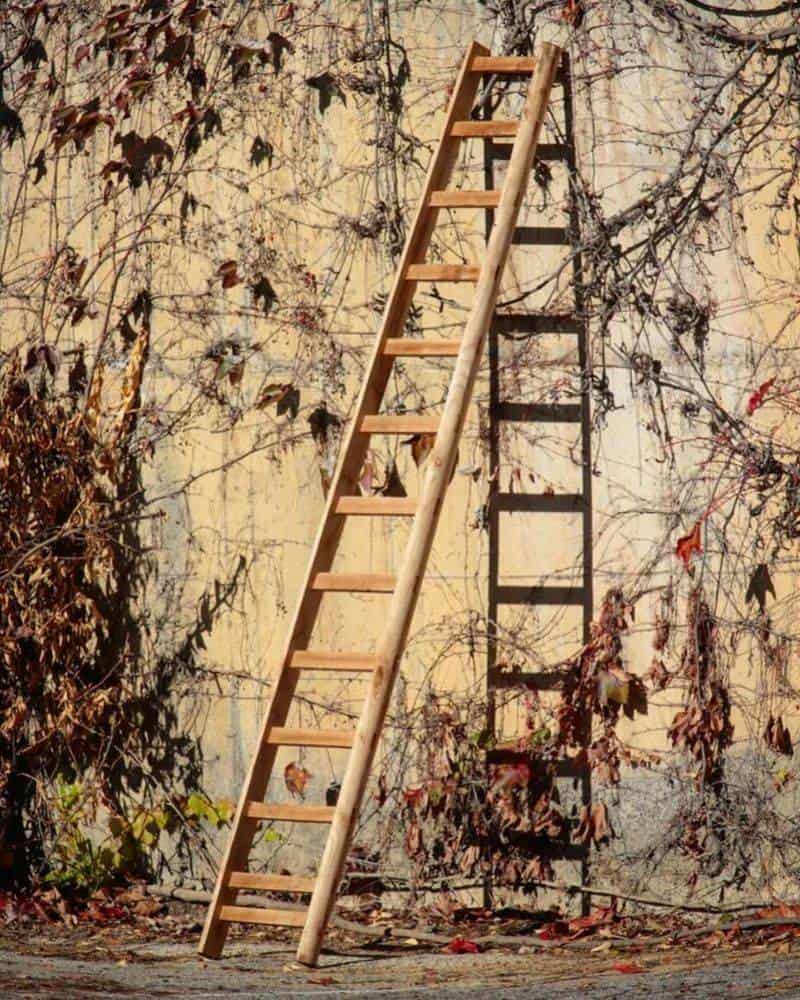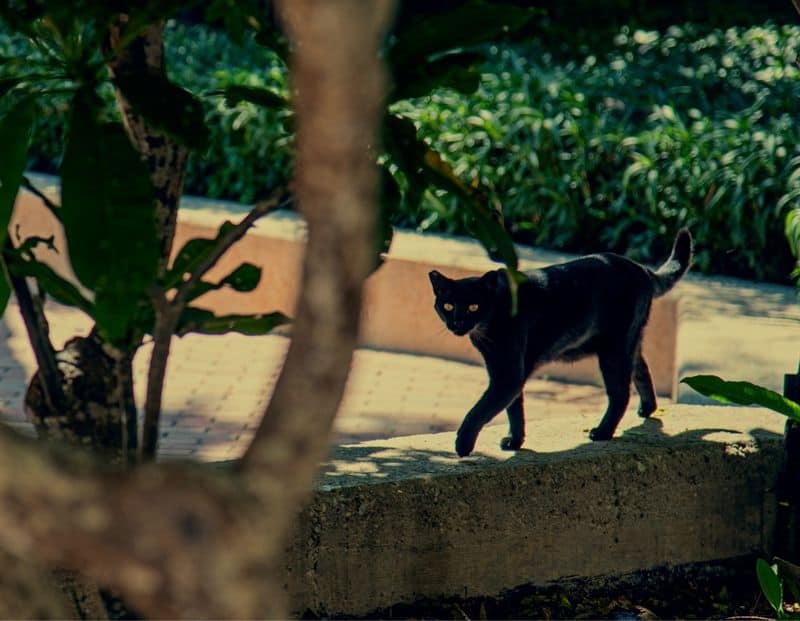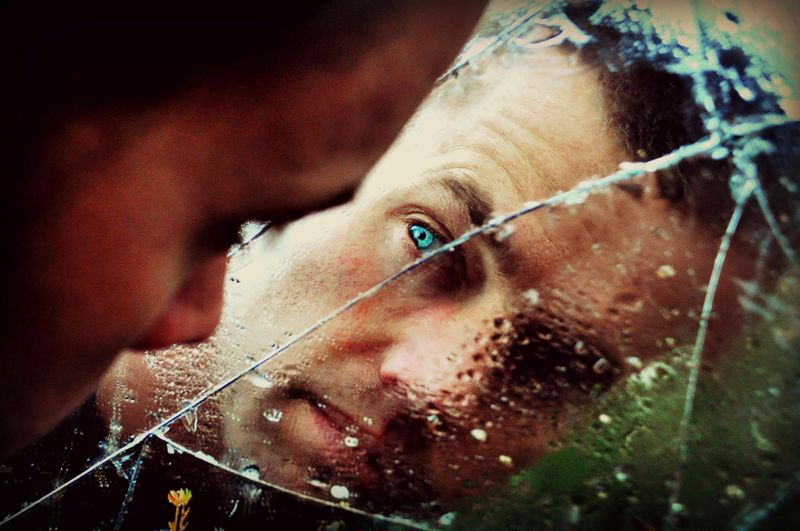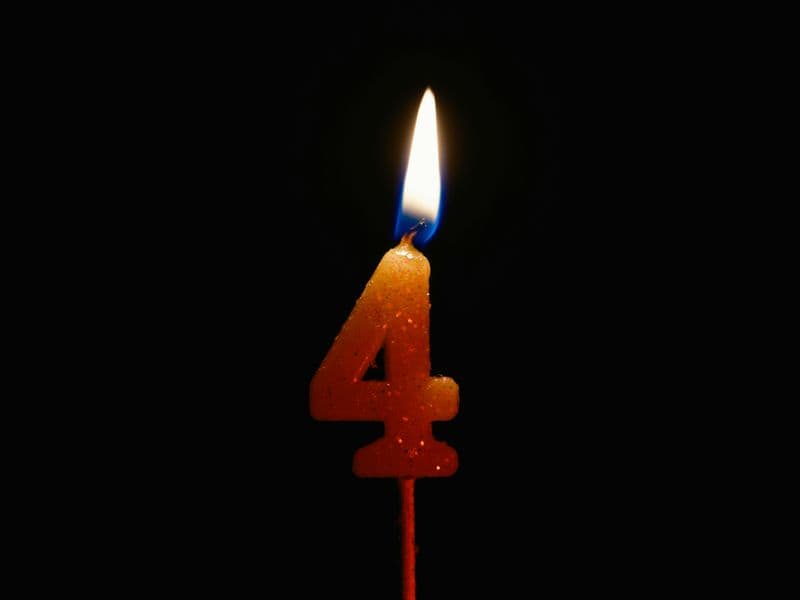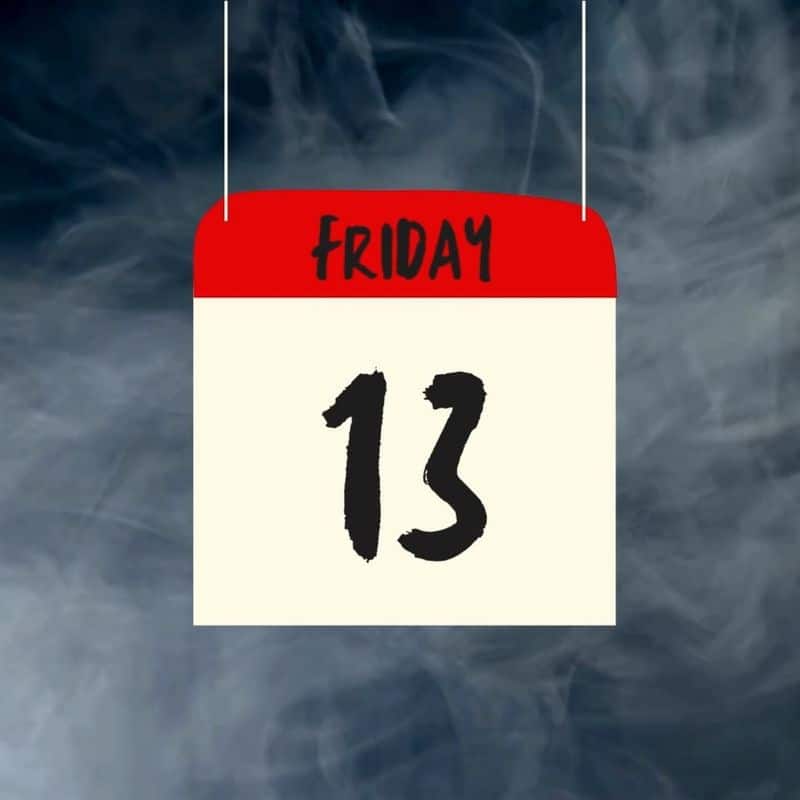Have you ever avoided walking under a ladder or felt a chill when a black cat crossed your path? You’re not alone!
Superstitions are funny little beliefs that have survived for centuries despite our modern, scientific world.
From salt-tossing to mirror-breaking, these quirky traditions shape daily decisions for millions of people worldwide, often without them realizing why they’re doing it.
1. Ladders Are Doorways to Doom
Countless sidewalk detours happen daily because of this ancient belief! Walking under a ladder forms a triangle – considered sacred in many cultures as it represents the Holy Trinity.
Breaking this geometric sanctity was thought to be practically inviting the devil over for dinner. The practical origin might be much simpler though – things fall from ladders, and medieval heads weren’t exactly protected by OSHA-approved hard hats.
Construction workers worldwide still witness perfectly reasonable adults performing elaborate sidewalk choreography just to avoid this triangular portal of bad luck.
2. Black Cats: Furry Harbingers of Misfortune
Midnight-colored felines can’t catch a break in Western culture. These purring pets were once believed to be witches in disguise or their faithful servants helping brew trouble for unsuspecting humans.
The fear runs so deep that black cats are still the least likely to be adopted from animal shelters. The irony? In Japan and parts of Britain, a black cat crossing your path is actually considered lucky!
Next time you spot one of these ebony furballs, remember your reaction might be based on superstitions older than indoor plumbing.
3. Knock on Wood (or Else!)
Ever noticed people frantically tapping nearby tables after mentioning something positive? That’s this ancient ritual in action! The practice dates back to pagan times when trees were thought to house protective spirits.
Knocking activated these woody guardians to shield you from the jealous ears of fate. Today, people worldwide still rap their knuckles on anything remotely wooden after statements like “I’ve never broken a bone” or “My kids rarely get sick.”
No wood nearby? Watch as people knock on plastic tables while making apologetic faces to the superstition gods.
4. Seven Years of Mirror Misery
Mirrors weren’t always hanging in every room. In ancient times, these reflective surfaces were rare luxuries, often made with actual silver backing (hence the term ‘silvering’).
Breaking one wasn’t just expensive—Romans believed mirrors captured pieces of your soul, and shattering one fractured your spirit for seven whole years! The number seven wasn’t random either—Romans believed life renewed in seven-year cycles.
Even today, watch someone’s face after breaking a mirror. That look of dread isn’t just about the cleanup or replacement cost—it’s seven years of cosmic payback looming over them!
5. Four: The Number That Doesn’t Exist
Imagine elevators skipping floors and hospitals missing room numbers! In East Asian countries like China, Japan, and Korea, the number four is avoided like moldy bread because it sounds eerily similar to their word for “death.”
This superstition, called tetraphobia, is so powerful that buildings regularly skip the 4th floor entirely. Product lines jump from 3 to 5, and gift sets of four items are practically taboo.
Next time you’re in an Asian country, count the floors in an elevator—that mysterious jump from 3 to 5 isn’t a mathematical error but a cultural dodge around death’s unlucky number!
6. Russian Whistling: Broke by Bedtime
Feel like whistling a happy tune indoors in Russia? Prepare for horrified looks! Russians firmly believe indoor whistling blows your money right out the window.
This superstition dates back to when whistling was thought to summon winds, spirits, or both—none of which were good for your household economy. Ship crews had similar beliefs, fearing whistling could conjure deadly storms at sea.
Modern Russians might use banking apps and credit cards, but many still clamp their lips shut when the urge to whistle strikes indoors. Your Russian friends might tolerate many cultural differences, but this musical money-repellent isn’t one of them!
7. Korean Fan Death: The Breeze That Kills
Summer nights in South Korea come with a strange battle between comfort and survival. Many Koreans believe sleeping in a closed room with an electric fan running will lead to certain death!
The origins are murky—some say it was government propaganda to reduce electricity usage during shortages. Others point to misunderstandings about hypothermia or oxygen depletion.
Whatever the source, Korean fans often come with timers specifically designed to shut off before they can assassinate their sleeping owners. It’s probably the only country where fan manufacturers include safety features to prevent their products from murdering customers!
8. Spilled Salt: Devil’s Playground
Knock over the salt at dinner and watch as someone frantically tosses a pinch over their left shoulder! This peculiar panic dates back to when salt was incredibly valuable—spilling it wasn’t just wasteful but practically sinful.
The shoulder-tossing ritual exists because the devil supposedly lurks behind your left shoulder, and a faceful of salt will temporarily blind him to your clumsiness. Leonardo da Vinci even included spilled salt in “The Last Supper” painting as a symbol of betrayal.
Modern dinner tables worldwide still witness this ancient devil-deterring ritual, proving superstitions survive even when their practical foundations (salt scarcity) disappear!
9. Friday the 13th: Calendar Caution
One date on the calendar makes millions of people worldwide suddenly develop mysterious illnesses preventing them from traveling, making major decisions, or scheduling surgery. Friday the 13th combines two separately unlucky elements: Fridays (traditionally execution day) and the number 13.
The fear is so common it has its own scientific name: paraskevidekatriaphobia. Hotels often skip the 13th floor, airports might not have a 13th gate, and some streets skip house number 13 entirely.
An estimated billion dollars in business is lost on this date as people refuse to fly, shop, or conduct normal activities—all because of an ancient numerical superstition!
10. Itchy Palms: Money Magic
Feel a tingle in your palm? Before reaching for lotion, check which hand is itching! According to worldwide superstition, an itchy right palm means money coming in, while the left signals money going out.
Some versions suggest scratching the itchy palm on wood will guarantee the financial outcome you want. Others recommend not scratching at all if it’s your receiving hand—you might literally scratch away your incoming fortune!
This belief crosses cultural boundaries and economic systems, proving humans everywhere share the same financial hopes and fears—all projected onto the humble itch.


